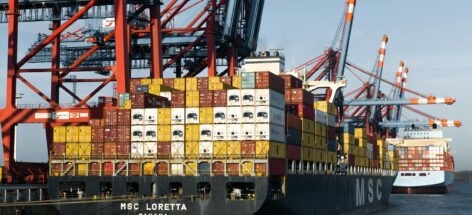News
14. October 2024
Reading Time: 3
Min.
news
EU Deforestation Regulation (EUDR)
Stringent rules for importers, operators and traders
The European Union is working to achieve its climate targets in a variety of ways, with companies playing a key role.
The ‘Deforestation Regulation’ is a new instrument to achieve the environmental targets. The Deforestation Regulation was originally set to enter into force on 30 December 2024, but the European Commission recently proposed to postpone the implementation. If the European Parliament and the Council agree to this postponement, the legislation will apply to large enterprises from 30 December 2025 onward, and to micro and small businesses from 30 June 2026 onward.
Our Baker Tilly International network partners in the Netherlands previously published an article on this matter HERE.
This article explains how the obligations under the Deforestation Regulation will affect you and your business.
What is the Deforestation Regulation?
The ‘Regulation on Deforestation-free products’ (EUDR), known in the Netherlands as the ‘Ontbossingsverordening’, is a component of the European ‘Green Deal’. The new Regulation aims to ban products that are linked to deforestation and forest degradation from entering the (European) market. The EUDR is the successor to the ‘European Timber Regulation’ (EUTR) that has applied to wood and wood product imports since 2013. In principle, the EUTR will continue apply until the end of 2027 to wood that was cut before 29 June 2023 and placed on the market after 30 December 2024.
Who is subject to the Deforestation Regulation?
Businesses, economic operators and traders operating within the European Union and which import, export or produce the high-risk goods listed below must comply with the rules of the EUDR. This not only applies to multinationals or large businesses. Small and medium enterprises and even sole proprietorships may fall within the scope of the EUDR.
Which high-risk goods fall under the Deforestation Regulation?
The Deforestation Regulation applies to the following seven ‘high-risk goods’:
- palm oil
- soy
- cattle
- cocoa
- coffee
- rubber
- wood
Certain derived products, such as tyres and chocolate, also fall within the scope of the Regulation.
As with the ‘Carbon Border Adjustment Mechanism’ (CBAM), it is possible that the EUDR will be expanded in the future. In that case, trade in other (most likely primarily agricultural) products will need to comply with the rules. It is currently unclear if and when this will occur.
What sanctions may be imposed?
If a party does not comply with the rules of the Deforestation Regulation, they may not trade in high-risk goods (importing, exporting or placing on the market). Non-compliance can lead to:
- Fines of up to 4% of EU turnover of the previous year,
- Confiscation of relevant high-risk goods and the related revenues,
- Temporary exclusion from public procurement processes and public funding,
- Temporary ban on trading in high-risk goods,and higher requirements for due diligence reporting.
Furthermore, violators are included in a public list.
Prepare your company properly
Does your company fall within the scope of the EUDR? If so, you may only trade in high-risk goods if you can demonstrate that they are not linked to deforestation and are produced according to the laws of the country of origin. Furthermore, the products must be accompanied by ‘due diligence statements’ providing evidence that deforestation did not occur.
When determining the obligations, a distinction is made between ‘operators’ and ‘traders’.
Traders are subject to less stringent requirements, under the assumption that traders’ products have already been examined earlier in the supply chain. Further, certain smaller businesses only need to comply with the EUDR as of June 2025 (or June 2026 if the implementation is postponed).
We expect that the administrative costs associated with the due diligence statements and paper trail will be considerable. There are also substantial risks associated with failure to comply with the rules, because trade or production may simply be prohibited. It is therefore very important that your business processes are correctly established in time. Accurately mapping your supply chain is an important part of this.
Are you not yet sure what steps you need to take? Do you need help implementing a system of due diligence requirements? Or as a micro, small or medium enterprise, do you want to know what administrative processes you will need to set up or modify?
If so, be sure to contact our experts early!








